Masayuki Yui
Birth : 1947-09-21, Kanagawa Prefecture, Japan
History
Masayuki Yui was born in 1947 in Kamakura, Kanagawa, Japan. He is an actor and writer, known for Ran (1985), Kagemusha (1980) and Dreams (1990).

Gankane-san
Cicada is the story of Jumpei-- a man who loses sight of his progeny when he finds out he is infertile, but then is given the gift of clairvoyance and begins to see glimpses of the future. These glimpses lead him to a series of cicada shells, which become symbolic of his desire to shed his old self. Though his lineage ends with himself, Jumpei starts anew as a father-figure to his sister's young son.
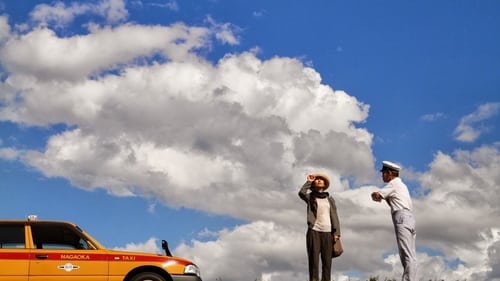
In 2011, a journalist arrives in Nagaoka, a Japanese village that underwent destruction during both World War II and the 2004 Chūetsu earthquakes, and is now notable for the fireworks it launches annually in memory of the victims of war. She is there for two reasons: firstly, to learn about the experiences of Nagaoka's inhabitants, and secondly, to watch a stage play written by an enigmatic student of her ex-boyfriend, which depicts the bombing of the city during WWII.

Hasegawa
Tamotsu is expecting a persimmon to dry and yet he cannot accept that it is time for a man on his deathbed to die. As the persimmon mysteriously, or supernaturally, holds out from drying, so Tamotsu tries his hardest to keep the man alive. Only when Tamotsu has let go can the persimmon take its natural course.

Ohba
A talented but troubled Edo Period swordsman, Kanemi Sanzaemon. Three years earlier, Kanemi killed a woman, Renko, the corrupt mistress of the powerful daimyo Tabu Ukyou. Unexpectedly, Kanemi received a lenient sentence for his crime and is allowed to return to his clan after only one year of imprisonment. Following his return, Kanemi is faced with the death of his wife, Mutsue. Thereafter, Kanemi lives with and cares for his wife's niece, Satoo, who has secret affections for Kanemi and expresses them by helping change his bleak outlook on life. Meanwhile, Kanemi's develops his unique "bird-catching" sword technique which he will soon put to test in battle for the first time against the fearsome swordsman, Hayatonosho Obiya.

Old Man
A co-worker confronts Mamoru on his apparent apathy toward life, and this results in Mamoru leaving his job out of humiliation. Now alone and without work, just as it seems that things could not possibly get worse, parts of Mamoru's bicycle begin to disappear, one by one. In frustration, Mamoru leaves a note for the thief, begging him to just take the whole thing. The note left in response is signed God, leaving Mamoru only more confused. At last, when the only remaining piece of the bicycle is a lonely bell, Mamoru receives an envelope, containing addresses at which each piece of the bicycle might be retrieved.

When poverty-stricken Korean-Japanese (Zainichi) discover there is valuable iron ore in the rubble of a destroyed shantytown they plan to haul it out for profit. Amidst this plan there is discrimination, war and an infatuation between a man and a woman, but like everything around them there and owing to the forces around them, there is as much chance that these may burn to ashes and be destroyed or be the beginning of something new.

Producer
Documentary made by Toho for the Masterworks reissue of all of its Kurosawa films. This one focuses on "Dodes'ka-den" (1970).

Writer
Documentary made by Toho for the Masterworks reissue of all of its Kurosawa films. This one focuses on "Dodes'ka-den" (1970).

Producer
Documentary made by Toho for the Masterworks reissue of all of its Kurosawa films. This one focuses on “Ran” (1985).

Writer
Documentary made by Toho for the Masterworks reissue of all of its Kurosawa films. This one focuses on “Ran” (1985).

Producer
Documentary made by Toho for the Masterworks reissue of all of its Kurosawa films. This one focuses on "The Lower Depths" (1957).

Writer
Documentary made by Toho for the Masterworks reissue of all of its Kurosawa films. This one focuses on "The Lower Depths" (1957).

Producer
Documentary made by Toho for the Masterworks reissue of all of its Kurosawa films. This one focuses on "The Bad Sleep Well" (1960).

Writer
Documentary made by Toho for the Masterworks reissue of all of its Kurosawa films. This one focuses on "The Bad Sleep Well" (1960).

Producer
Documentary made by Toho for the Masterworks reissue of all of its Kurosawa films. This one focuses on "Stray Dog" (1949).

Writer
Documentary made by Toho for the Masterworks reissue of all of its Kurosawa films. This one focuses on "Stray Dog" (1949).

Producer
Documentary made by Toho for the Masterworks reissue of all of its Kurosawa films. This one focuses on "Kagemusha" (1980).

Writer
Documentary made by Toho for the Masterworks reissue of all of its Kurosawa films. This one focuses on "Kagemusha" (1980).

Producer
Documentary made by Toho for the Masterworks reissue of all of its Kurosawa films. This one focuses on "Ikiru" (1952).

Writer
Documentary made by Toho for the Masterworks reissue of all of its Kurosawa films. This one focuses on "Ikiru" (1952).

Producer
Documentary made by Toho for the Masterworks reissue of all of its Kurosawa films. This one focuses on "Throne of Blood" (1957).

Writer
Documentary made by Toho for the Masterworks reissue of all of its Kurosawa films. This one focuses on "Throne of Blood" (1957).

Producer
Documentary made by Toho for the Masterworks reissue of all of its Kurosawa films. This one focuses on "The Hidden Fortress" (1958).

Writer
Documentary made by Toho for the Masterworks reissue of all of its Kurosawa films. This one focuses on "The Hidden Fortress" (1958).

Producer
Documentary made by Toho for the Masterworks reissue of all of its Kurosawa films. This one focuses on "High and Low" (1963).

Writer
Documentary made by Toho for the Masterworks reissue of all of its Kurosawa films. This one focuses on "High and Low" (1963).
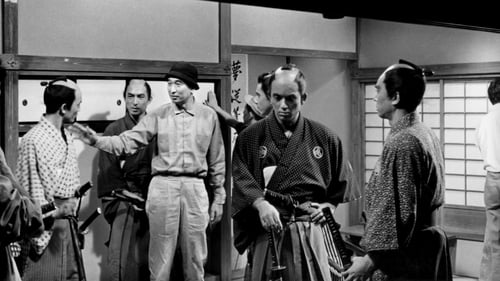
Producer
Documentary made by Toho for the Masterworks reissue of all of its Kurosawa films. This one focuses on "Sanjuro" (1962).

Writer
Documentary made by Toho for the Masterworks reissue of all of its Kurosawa films. This one focuses on "Sanjuro" (1962).

Producer
Documentary made by Toho for the Masterworks reissue of all of its Kurosawa films. This one focuses on "Yojimbo" (1961).

Writer
Documentary made by Toho for the Masterworks reissue of all of its Kurosawa films. This one focuses on "Yojimbo" (1961).

Producer
Documentary made by Toho for the Masterworks reissue of all of its Kurosawa films. This one focuses on "Seven Samurai" (1954).

Writer
Documentary made by Toho for the Masterworks reissue of all of its Kurosawa films. This one focuses on "Seven Samurai" (1954).

Narrator
Documentary made by Toho for the Masterworks reissue of all of its Kurosawa films. This one focuses on "Seven Samurai" (1954).

Narrator
Documentary made by Toho for the Masterworks reissue of all of its Kurosawa films. This one focuses on "Yojimbo" (1961).

Narrator/Interviewer
Documentary made by Toho for the Masterworks reissue of all of its Kurosawa films. This one focuses on "Ikiru" (1952).

Narrator
Documentary made by Toho for the Masterworks reissue of all of its Kurosawa films. This one focuses on "Kagemusha" (1980).

Narrator
Documentary made by Toho for the Masterworks reissue of all of its Kurosawa films. This one focuses on "The Hidden Fortress" (1958).

Narrator
Documentary made by Toho for the Masterworks reissue of all of its Kurosawa films. This one focuses on "High and Low" (1963).

Narrator
Documentary made by Toho for the Masterworks reissue of all of its Kurosawa films. This one focuses on "Dodes'ka-den" (1970).

Narrator
Documentary made by Toho for the Masterworks reissue of all of its Kurosawa films. This one focuses on "Sanjuro" (1962).

Narrator
Documentary made by Toho for the Masterworks reissue of all of its Kurosawa films. This one focuses on "The Bad Sleep Well" (1960).

Narrator
Documentary made by Toho for the Masterworks reissue of all of its Kurosawa films. This one focuses on "The Lower Depths" (1957).

Narrator
Documentary made by Toho for the Masterworks reissue of all of its Kurosawa films. This one focuses on "Stray Dog" (1949).

Narrator
Documentary made by Toho for the Masterworks reissue of all of its Kurosawa films. This one focuses on "Drunken Angel" (1948).

Narrator
Documentary made by Toho for the Masterworks reissue of all of its Kurosawa films. This one focuses on "Throne of Blood" (1957).

Captain Noguchi
Based on a real-life story, this drama focuses on a small group of Allied soldiers in Burma who are held captive by the Japanese. Capt. Ernest Gordon (Ciaran McMenamin), Lt. Jim Reardon (Kiefer Sutherland) and Maj. Ian Campbell (Robert Carlyle) are among the military officers kept imprisoned and routinely beaten and deprived of food. While Campbell wants to rebel and attempt an escape, Gordon tries to take a more stoic approach, an attitude that proves to be surprisingly resonant.
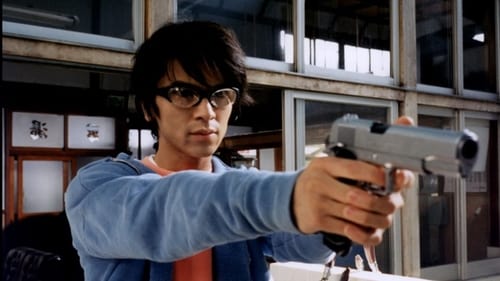
Manager of beauty parlor
The police are tracking a man who shoots at people. But the young sister of a detective finds that he's not the mad vigilante portrayed in newspapers.
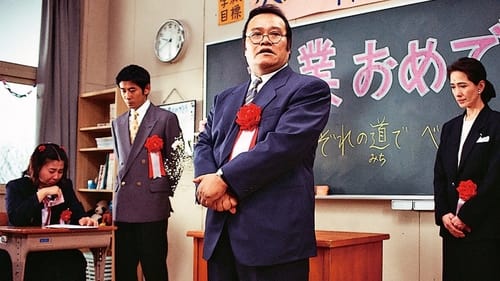
The story follows the teacher and students of the Ryubetsu Handicapped High School.
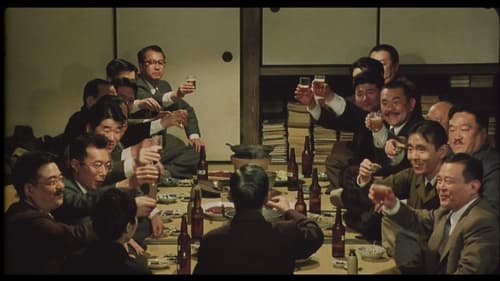
Kiriyama
Based on the life of Hyakken Uchida, a Japanese author and academic. The film opens with Uchida resigning his job as a German professor at the onset of WWII. The story is told mostly in vignettes as he is cared for by former students in his old age.

Member of climbing team
A collection of magical tales based upon the actual dreams of director Akira Kurosawa.
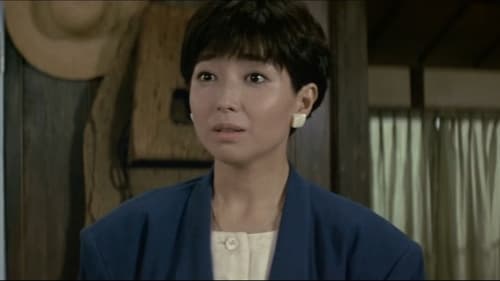
When his travels take him to rural Hokkaido, Tora-san helps a cantankerous old veterinarian (Mifune) in his relationships with his estranged daughter, and a woman in whom he is secretly interested.
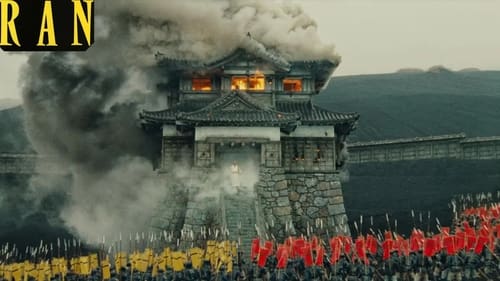
Tango Hirayama
With Ran, legendary director Akira Kurosawa reimagines Shakespeare's King Lear as a singular historical epic set in sixteenth-century Japan. Majestic in scope, the film is Kurosawa's late-life masterpiece, a profound examination of the folly of war and the crumbling of one family under the weight of betrayal, greed, and the insatiable thirst for power.

Ieyasu Tokugawa
Akira Kurosawa's lauded feudal epic presents the tale of a petty thief who is recruited to impersonate Shingen, an aging warlord, in order to avoid attacks by competing clans. When Shingen dies, his generals reluctantly agree to have the impostor take over as the powerful ruler. He soon begins to appreciate life as Shingen, but his commitment to the role is tested when he must lead his troops into battle against the forces of a rival warlord.



















































